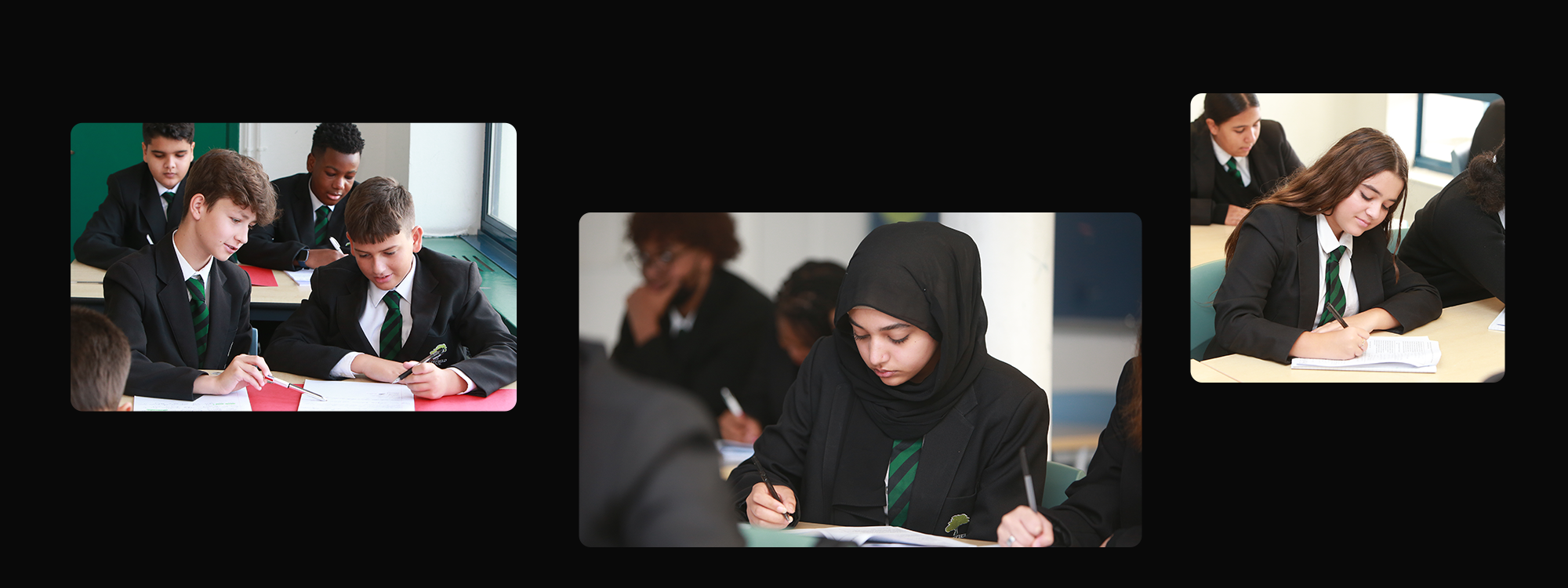- Home
- About Us
- Learning
- History Curriculum Overview
"In history, a great volume is unrolled for our instruction, drawing the materials of future wisdom from the past errors and infirmities of mankind"
Edmund Burke
The core intent of our History curriculum is to promote a love of History and intellectual curiosity that nurtures well-rounded, creative and ambitious thinkers that are equipped to achieve great grades. This is implemented through an academically rigorous and engaging curriculum. Our curriculum is ambitious and diverse, taking into consideration the 'powerful knowledge' that our students need to leave school with.
We know that our students often arrive with a cultural deficit and therefore, we have to take a proactive approach to developing their cultural capital and wider world knowledge. This is partly achieved through the topics we choose to teach, such as the British Empire, the British Civil Rights Movement, and Migration to Britain. However, this is alongside more ‘traditional’ topics - such as the Norman Conquest, Reformation and the World Wars - which continue to hold great importance in British culture and society. We are thus ambitious in the breadth of the curriculum we cover, and go beyond the National Curriculum, without sacrificing the depth needed to truly grapple with the History taught.
In lessons, students are required to reflect on thought-provoking enquiry questions that are both historically interesting and relevant to the present world. Alongside this, wider experiences through trips and enrichment opportunities build students’ cultural capital and awareness, and embed the contemporary relevance of the History they learn. This ranges from trips to the Imperial War Museum’s Holocaust exhibition in Year 9, to visiting the Houses of Parliament in Year 10. Finally, the desired impact of our History curriculum is for the study of History to empower young people to become active global citizens grounded in an understanding of how the past has shaped the world we live in today.
Impact
- History is widely promoted as a useful GCSE and A Level option that opens doors for a wide range of careers. Far from just limiting students to being History teachers, Historians or Lawyers (as many initially think), we encourage students to see History as a subject that develops widely transferable skills and can in fact provide a pathway to careers including Diplomacy, Consultancy, Charity Work and Journalism. This is promoted through classroom displays and posters, as well as making links to the ‘Skills Builder’ skills in lessons. Indeed, many of our A Level students do go on to study History at University, which reflects the successful work done in this area.
Implementation
Year 7: There is a heavy focus on vocabulary instruction and extended writing, including building students’ tier-two & tier-three vocabulary, and developing their ability to write at length and with flair. Students are introduced to the second order concepts, such as causation and historical significance, giving them the necessarily building blocks for their later engagement with these concepts at a more sophisticated level.
Year 8: The focus in Year 8 is to build on the disciplinary foundations laid in Year 7. Engaging with new substantive content focusing on the late Early Modern and Industrial Period, students develop a more rigorous understanding of the second order concepts introduced in Year 7 (such as causation) and are introduced to new concepts, such as historical interpretations. There is a continued focus on developing students’ literacy and vocabulary, including through greater exposure to extended reading and historians.
Year 9: Year 9 is a pivotal foundation year for our Historians. We recognise the importance of students having relevant schema to build new meaning at GCSE, whilst embracing the unique opportunity our students have to study substantive knowledge without the pressure of exams. We develop students’ conceptual understanding and the written skills needed to excel at GCSE. This is taught through carefully selected topics that are invaluable to their position as citizens of a global democratic society, such as the French Revolution and Civil Rights. Students revisit the second order concepts covered in a Year 7 and 8 at a more advanced level. The values of democratic citizenship, empathy and global identity underpin the curriculum. There is an explicit focus on literacy.
Year 10: By Year 10, the cumulative effect of having studied the second order concepts from Year 7 should give students a firm grounding for GCSE. This will be built on to deepen their ability as historians, whilst applying this to the demands of the GCSE spec. The papers chosen reflect both the knowledge students need to thrive in a global democratic society, whilst ensuring sufficient historical breath to make them well rounded historians, is premised on the idea of ‘powerful knowledge’. There is a clear, systematic focus on vocabulary from the outset. Much of this builds on strong foundations and thus focuses on increasing the sophistication of students’ written work, such as through more complex sentence construction to add depth.
Year 11: The focus for Year 11 is finishing the GCSE spec, and refining students’ understanding through a focus on interleaving and regular retrieval practice, recognising the cognitive demands of studying four dense papers. There is a heavy focus on exam technique and the embedding of substantive knowledge through its application to exam questions driven by the second order concepts students have been studying since Year 7. Intervention is run at FBs with underperforming student, focusing on knowledge retrieval and exam technique. A separate intervention is run for More Able students, focusing on how to achieve a Grade 7-9. The literacy focus is on expressing ideas with precision and sophistication.




